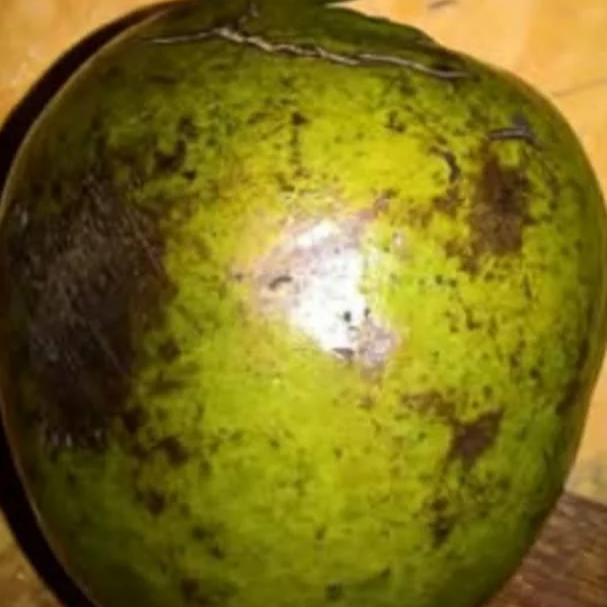 Image 1 of 2
Image 1 of 2

 Image 2 of 2
Image 2 of 2



Irvingia gabonensis - African mango or bush mango
Irvingia gabonensis, commonly known as African mango or bush mango, is a tropical fruit-bearing tree native to the humid forests of West and Central Africa. The tree is highly valued for its edible fruit, which resembles a mango but has a unique flavor and texture. Beyond its fruit, Irvingia gabonensis is prized for its seeds, known as ogbono or dikanuts, which are rich in healthy fats, proteins, and dietary fiber. These seeds are traditionally used to thicken soups and stews, and they have gained international attention for their potential health benefits, including supporting weight management and improving cholesterol levels.
The tree itself is medium to large in size, thriving in well-drained tropical soils and playing an important ecological role in its native habitat. Its durable wood is sometimes used for construction, while the leaves and bark have applications in traditional medicine. Irvingia gabonensis is not only a source of nutrition but also an important economic crop for rural communities across Africa, contributing to both food security and sustainable livelihoods.
Seeds are from a cultivated tree and are shipped in packs of one, in humid vermiculite.
Irvingia gabonensis, commonly known as African mango or bush mango, is a tropical fruit-bearing tree native to the humid forests of West and Central Africa. The tree is highly valued for its edible fruit, which resembles a mango but has a unique flavor and texture. Beyond its fruit, Irvingia gabonensis is prized for its seeds, known as ogbono or dikanuts, which are rich in healthy fats, proteins, and dietary fiber. These seeds are traditionally used to thicken soups and stews, and they have gained international attention for their potential health benefits, including supporting weight management and improving cholesterol levels.
The tree itself is medium to large in size, thriving in well-drained tropical soils and playing an important ecological role in its native habitat. Its durable wood is sometimes used for construction, while the leaves and bark have applications in traditional medicine. Irvingia gabonensis is not only a source of nutrition but also an important economic crop for rural communities across Africa, contributing to both food security and sustainable livelihoods.
Seeds are from a cultivated tree and are shipped in packs of one, in humid vermiculite.

